Exposure to Inequality Begets Inequality Rather than Generosity
A revealing field study shows how exposure to inequality tends to beget inequality, rather than the opposite generosity we might have expected.
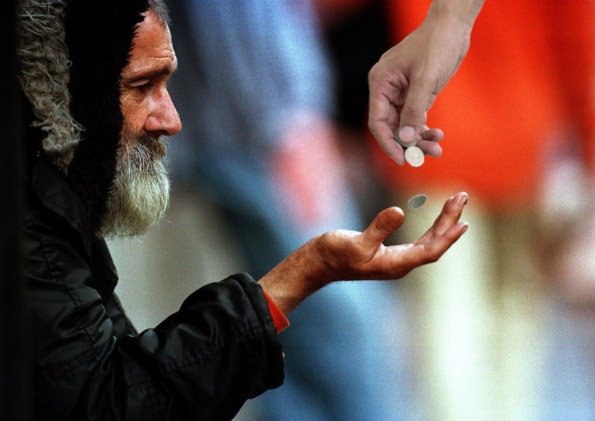
source
The recent public awareness in wealth disparity between the very rich and everyone else has some people calling for the redistribution of income for the wealthy. They want the very rich to pay more taxes so that more money can help the poor.
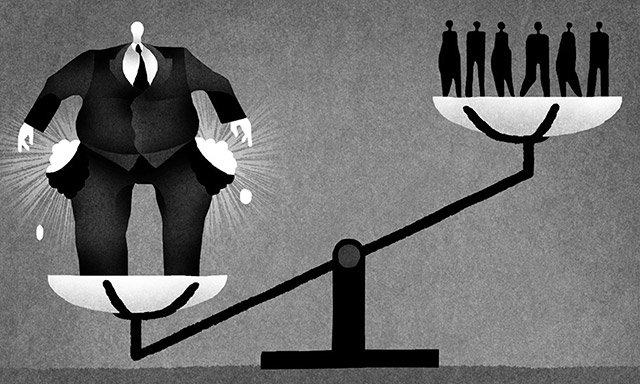
source
Since the government minority need support from the public majority, they need to know if the public actually does support such an action the politicians would try to introduce. If it's something the public does not actually favor, then politicians won't likely try to introduce it.
A Harvard University field study set out with the following question to determine how viable political action was:
"How does visible economic inequality affect well-off individuals’ support for redistribution?"
The study was published in the Proceedings of the National Academy of Sciences, and involved 2,591 solicitations of random individuals to sign a petition asking for more redistribution of wealth through a "millionaire’s tax."
People were exposed to a mock simulation of a real-world-setting that expose them to socioeconomic inequality and poverty.
Male volunteers, some white and some black, posed as either an affluent rich person, or someone who was visibly very poor. In either case, a scenario was created in a wealthy neighborhood where wealthy people would have to walk by either a poor or rich looking volunteer in order to reach their destination.
After passing the rich or poor person in their environment, another volunteer would ask them to sign one of two petitions. One petition asked to support a reduction in use of plastic bags, while the other petition asked for the support of a 4% income tax on people making more than $1 million a year.
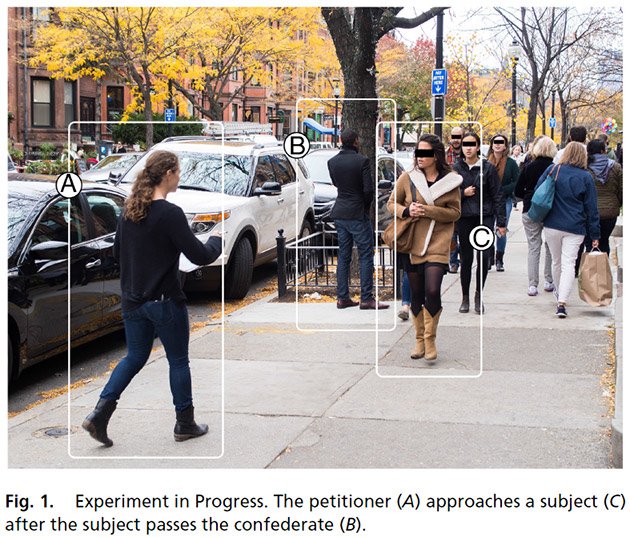
source
People who saw a poor white man were twice as likely to not sign the petition to tax the rich, while those who saw it for black man were less impacted to not sign.
Melissa L. Sands, the author of the study says the wealthy people might've expected the white man to be doing better without assistance and judged him more harshly as a result which impacted their decision to help him through taxation.
Exposure to socioeconomic inequality will decrease the likelihood of individuals to redistribute the wealth of the rich.
This means that seeing a poor white man may makes us twice as likely to ignore helping the poor, compared to if we hadn't seen a poor person at all.
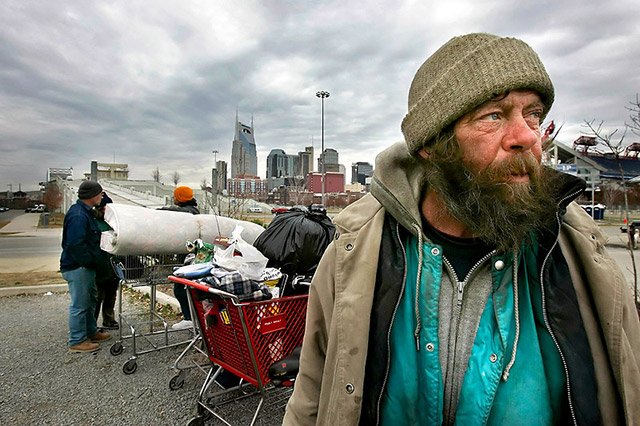
source
What do you think about that?
If we're wealthy, or maybe even just well off, we're more willing to help an abstract representation which allows wealth confiscation (theft) if we don't see inequality around us, while we're twice as likely to not support such a measure if we just saw a poor white person we think is undeserving of our help.
Sure, we can expect more from one individual than another, OK, fair enough. But the problem is that if what we thought was good to do before, why not do it anymore? One individual doesn't represent everyone. The attention bias and availability heuristic have us engage in fallacious reasoning to justify not helping many people because we think one person doesn't deserve it. I'm not advocating for the coercive taxation, I'm just talking about the underlying psychology behind people's change in behavior.
"Exposure to socioeconomic inequality in an everyday setting negatively affects willingness to publicly support a redistributive economic policy."
Exposure to inequality shapes our decision-making process, with a tendency to not stop the inequality, but instead allow it to continue. Both the saliency of the poor person in our attention, and the saliency of our valuation of the inequality, is linked to antisocial behavior in this context, where social behavior would be to help instead of not helping.
This is evidence connecting a perception of inequality to a diminishing of generosity. Environmental factors of where we are, the neighborhood, and the exposure to racial and economic social groups, affects our behavior, and not always in positive ways as most of us might have assumed.
This study shows how poverty, inequality, and economic segregation affect our lives, and possibly how they begin, fester and grow by our indifference or expectation of others when they are in difficult times. Even though it targeted a wealthy neighborhood and their attitude towards the poor, I suspect some of this trickles down and applies to other socioeconomic groups that aren't as affluent.
References:
- Field study suggests wealthy less willing to tax rich when poor people are around
- Exposure to inequality affects support for redistribution
If you appreciate and value the content, please consider:
@krnel
2017-01-10, 8:35pm

Hello @krnel,
Congratulations! Your post has been chosen by the communities of SteemTrail as one of our top picks today.
Also, as a selection for being a top pick today, you have been awarded a TRAIL token for your participation on our innovative platform...STEEM.
Please visit SteemTrail to get instructions on how to claim your TRAIL token today.
If you wish to learn more about receiving additional TRAIL tokens and SteemTrail, stop by and chat with us.
Happy TRAIL!
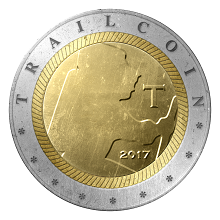
The most difficult problem of our time, solve the problem of equalitarianism in the world of Objects
The blockchain as a realizable Utopia of an equalitarian society in the relation of man to man has not yet resolved the problem of the world of objects being a hierarchic society of personal privatized assets and such an abyssal gap in the distribution of wealth.
But some new idealists on the blockchain are creating a feasible utopia by trying to make way to lower the gap of inequality, like UBI (Universal Basic Income).
Egalitarianism for now just a non-realizable utopia
Can't resist putting a quote of my next post in relation to inequality
Al Capone - "Capitalism is the legitimate racket of the ruling class"
Well said! And I truly believe that the solutions won't come from Govt. Trillions in wasted spending and nothing has been solved.
cool post i like the message, follow me ill follow back
Frankly I don't think this survey asked an intelligent question, because who in his right mind would want to pay more taxes? You are saying it was taken in a wealthy neighborhood, every one of the wealthy people surveyed is probably making or aiming at making over one million a year.
Yeah, but people did sign it more often, twice as more, if there was no white poor guy present. Remove the white poor guy, and boom 2x more approval of taxing themselves it seems lol
In a rich white neighborhood.
Why do you think that it works like that in any other neighborhood, would you be suprised if it didn't work at all and it worked like you'd expect it to work in a baser hood?
This post has been ranked within the top 10 most undervalued posts in the first half of Jan 11. We estimate that this post is undervalued by $18.66 as compared to a scenario in which every voter had an equal say.
See the full rankings and details in The Daily Tribune: Jan 11 - Part I. You can also read about some of our methodology, data analysis and technical details in our initial post.
If you are the author and would prefer not to receive these comments, simply reply "Stop" to this comment.
Just a thought.
Could it be, that if you see a poor man it show's you that taxing and giving it to the poor doesn't work or at least not enough, cause if it worked there wouldn't be any poor people around? And that, liked you mentioned in you article, if you don't see the poor man, you're not confronted with that reality so you can think more ideologic about taxing and solving poverty through that method.
Another thought
Also If people are taxed, they might think the problem is already taken care of. The responsibility of helping poor people is now a problem of the politicians they voted for, not of them personally, (they've outsourced the problem so to say) so it's not their problem and responsibility anymore.
Everything they do to help the poor is playing the indirect political game (voting every 4 year) instead of taking direct responsibility. And who can blame them, this is how they where taught things worked.
In my opinion there is also a difference between:
Working on inequality, to resolve poverty
And working to resolve poverty.
(English is not my native language.)